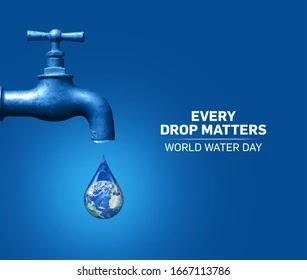world water day
Introduction:
Today is World Water Day, an international observance day that is held annually on 22 March. It is a day to raise awareness about the importance of freshwater and advocate for the sustainable management of freshwater resources. This year’s theme is “Valuing Water”, which encourages us to reflect on the true value of water and how we can better protect and manage it.
Why is water important?
Water is essential for all forms of life, from humans and animals to plants and ecosystems. It plays a critical role in agriculture, energy production, and industry. Without water, life as we know it would not be possible. However, despite its importance, many people around the world do not have access to clean and safe water. In fact, according to the United Nations, 2.2 billion people lack access to safe drinking water, which is a basic human right.
Challenges facing our water resources:
Water resources are facing unprecedented challenges due to a combination of factors such as climate change, population growth, pollution, and poor management. Climate change is altering the hydrological cycle and causing more extreme weather events such as floods and droughts. Population growth is increasing the demand for water, leading to overuse and depletion of groundwater resources. Pollution from agriculture, industry, and households is contaminating water sources, making it unsafe for human consumption and harming aquatic life. Poor management of water resources exacerbates these challenges and undermines their sustainability.
What can we do to protect and manage water resources?
The management of water resources is a shared responsibility that involves individuals, communities, governments, and the private sector. Here are some actions we can take to protect and manage water resources:
Use water wisely: We can reduce our water consumption by fixing leaks, using water-efficient appliances, and adopting water-saving behaviors such as turning off the tap while brushing teeth.
Reduce pollution: We can prevent pollution by properly disposing of household waste, using eco-friendly products, and supporting industries that adopt sustainable practices.
Protect water sources: We can protect water sources by conserving forests, wetlands, and other natural areas that help to recharge and filter water.
Invest in infrastructure: Governments and the private sector can invest in water infrastructure such as dams, water treatment plants, and distribution networks to ensure that water is available and accessible to all.
The impact of COVID-19 on water resources:
The COVID-19 pandemic has highlighted the critical importance of water for public health and hygiene. However, it has also exposed the vulnerability of water resources to the pandemic. The pandemic has disrupted water supply and sanitation services in many countries, exacerbating existing water challenges such as inadequate access to safe water and sanitation. It has also increased the risk of waterborne diseases, which can further strain health systems already under pressure.
Innovative solutions to water challenges:
Innovative solutions are needed to address the complex water challenges facing the world today. There are many examples of innovative approaches to water management, such as:
Water harvesting: Capturing rainwater and other runoff for use in irrigation, household use, and recharge of groundwater.
Water recycling: Treating wastewater and reusing it for non-potable uses such as irrigation, industry, and flushing toilets.
Desalination: Removing salt and other impurities from seawater or brackish water to make it suitable for human consumption and other uses.
Green infrastructure: Using natural systems such as wetlands and forests to store and filter water, and to prevent erosion and floods.
Digital technologies: Using sensors, data analytics, and artificial intelligence to optimize water use, detect leaks, and improve water management.
The role of individuals and communities:
Individuals and communities have a critical role to play in protecting and managing water resources. They can take actions such as:
Conserving water: Using water wisely and adopting water-saving behaviors.
Advocating for water rights: Advocating for policies that ensure equitable and sustainable access to water for all.
Participating in water governance: Engaging in decision-making processes related to water management at the local, regional, and national levels.
Conclusion:
In conclusion, World Water Day is an opportunity to reflect on the critical role that water plays in our lives and to take action to protect and manage our water resources. Whether through innovative solutions, collective action, or individual actions, we can all contribute to ensuring a sustainable water future for ourselves and future generations. Let us continue to value water and work towards a world where everyone has access to clean and safe water.





Comments
Post a Comment